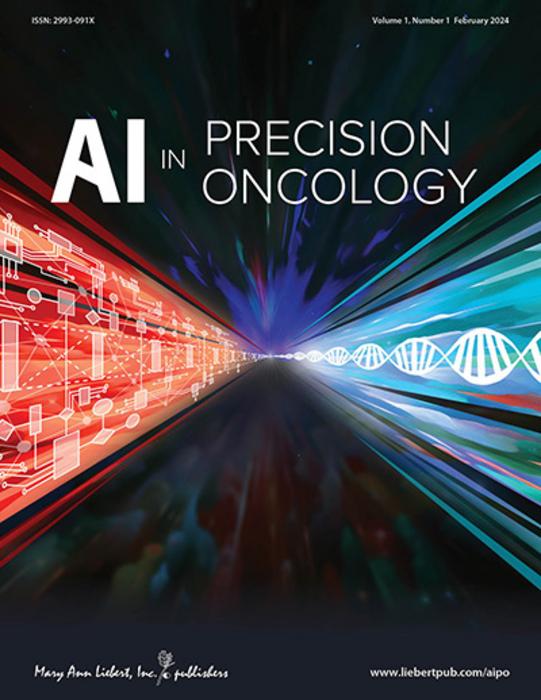A new study examines the development of two machine learning models to classify the immunophenotype of a cancer specimen. The digital pathology approach presented can characterize and classify cancer immunophenotypes in a reproducible and scalable fashion, holding promise for the application of such a. method to identify patients that may benefit from immunotherapy in non-small cell lung cancer (NSCLC), according to the study published in the peer-reviewed journal AI in Precision Oncology. Click here to read the article now.

Credit: Mary Ann Liebert
A new study examines the development of two machine learning models to classify the immunophenotype of a cancer specimen. The digital pathology approach presented can characterize and classify cancer immunophenotypes in a reproducible and scalable fashion, holding promise for the application of such a. method to identify patients that may benefit from immunotherapy in non-small cell lung cancer (NSCLC), according to the study published in the peer-reviewed journal AI in Precision Oncology. Click here to read the article now.
The cellular composition of the tumor immune microenvironment is a key contributor to the response of the tumor to immunotherapy. TGF-ß signaling is known to promote immune-exclusion, where CD8+ T cells are in the surrounding stromal tissue but not within the tumor itself.
To better identify patients who are immune-excluded, Rui Wang, from Sanofi, and coauthors, developed two machine learning models to quantify CD8+ cell positivity and classify the immunophenotype of a cancer specimen in patients with NSCLC.
“Our results support the potential use of machine learning-predicted cancer immunophenotypes to identify patients that may benefit from immunotherapy and/or TGF-ß blockage in NSCLC,” concluded the investigators.
“This research points towards improvements in patient identification for drug candidacy, utilizing AI and machine learning to pinpoint precise biomarkers for immunotherapy in NSCLC. It signifies progress towards personalized medicine, promising treatments tailored to individual patient profiles for greater effectiveness and minimized side effects. Essentially, it emphasizes the importance of directing new treatments to the right patients, paving the way for a new era of precision in cancer care,” says Douglas Flora, MD, Editor-in-Chief of AI in Precision Oncology.
About the Journal
AI in Precision Oncology is the only peer-reviewed journal dedicated to the advancement of artificial intelligence applications in clinical and precision oncology. Spearheaded by Editor-in-Chief Douglas Flora, MD and supported by a diverse and accomplished team of international experts, the Journal provides a high-profile forum for cutting-edge research and frontmatter highlighting important research and industry-related advances rapidly developing within the field. For complete information, visit the AI in Precision Oncology website.
About the Publisher
Mary Ann Liebert, Inc. is a global media company dedicated to creating, curating, and delivering impactful peer-reviewed research and authoritative content services to advance the fields of biotechnology and the life sciences, specialized clinical medicine, and public health and policy. For complete information, please visit the Mary Ann Liebert, Inc. website.
Journal
AI in Precision Oncology
Method of Research
Experimental study
Subject of Research
People
Article Title
Classification of the Tumor Immune Microenvironment Using Machine-Learning-Based CD8 Immunophenotyping As a Potential Biomarker for Immunotherapy and TGF-β Blockade in Nonsmall Cell Lung Cancer
Article Publication Date
25-Mar-2024



